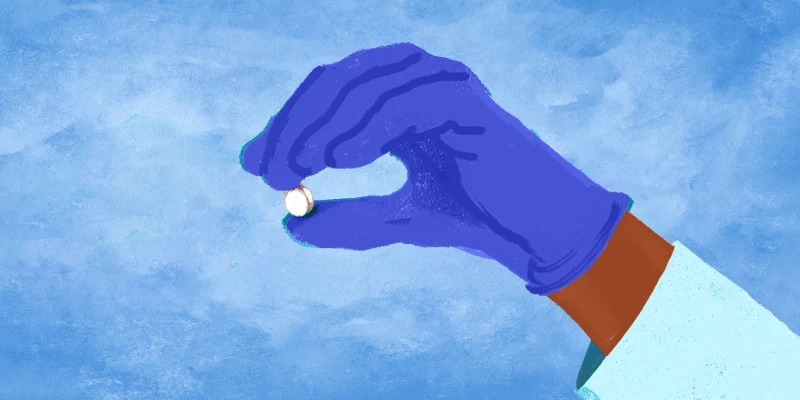
“Study the past if you would define the future.”
These wise words from Confucius take special meaning in these unsettling times. Humanity did not heed this advice to the level that could have prevented the current pandemic, but we have gleaned other lessons from history’s greatest outbreaks and hardships to lessen its impact. These tactics will likely prove vital to weakening and ultimately defeating COVID-19.
But, some challenges simply have no precedent and will take creativity and proactivity to resolve.
No one exactly knows the timeline and prognosis of the pandemic, but most models project a range of 3–18 months, depending on the implementation and efficacy of our efforts. While there is some debate about when the new doctors of the 2020 Match should start their highly anticipated careers, they will certainly play a vital role in the fight against the novel coronavirus. They will be thrust into an environment the likes of which has not been seen for more than 100 years and will adapt quickly and rise to the challenge. But, what could happen to next year’s NRMP? Given current trends, could an entire class fail to match effectively?
This may sound like doomsday talk, but some signs are beginning to show that the NRMP of 2021 may be in danger. Almost all medical students have been pulled from their clinical rotations. Many hospitals and programs have restricted outside students from visiting for sub-internships and away rotations in some capacity. The NBME and NBOME have also suspended the USMLE and COMLEX through mid-April. Everyone continues to monitor the COVID-19 situation and hopes the virus will go to hell soon, but so far postponements and cancellations have become the new norm.
The coronavirus could certainly restrict travel for interviews and student involvement in the hospital through July, and thus hinder our ability to complete the traditionally necessary requirements for graduation, licensure, and residency applications. In this scenario, we could see a gross reduction in the number of students matching or a larger proportion than usual of students matching into lower-ranked choices.
The absolute worst case scenario is almost unthinkable. While the U.S. health system certainly has its problems, one strength is its medical resident workforce. A total of 37,256 physicians will begin work in new post-graduate positions this upcoming July. If the unthinkable were to happen, and a similar number of next year’s match candidates were to go without a post-graduate spot, our hospitals and clinics could potentially collapse. Residents perform a variety of critical functions for these organizations, including direct patient care, lightening the administrative load of their attendings, assisting in procedures, and coordinating treatment teams. This is all at a reduced cost to the public.
Perhaps it's fatalistic to purport that an entire match class would go unfilled, but we truly have no backdrop against which we can compare our current situation. If even a quarter of those positions were to go unfilled, a quick calculation (9000 residents, working 70–80 hours a week for 48–50 weeks a year) yields that about 30,000,000 total hours of work over the year would need to be made up by other staff. Nurses, APPS, other residents, and attending physicians would all see their responsibilities increase. Work-duty hour requirements would have to be adjusted to accommodate the lost labor, and the acute change in workload could lead to an increased mental health burden among our health care workforce. Attendings and senior residents would likely see the amount of time spent on the EHR go up, as well as effort on otherwise menial tasks usually performed by these junior residents. Future matches after 2021 could be adversely affected and for specialties and individual programs that rely on only one or a few new interns every year, they could especially be in logistic trouble. This is all under the assumption that our health care workforce as it stands now will have recovered from the coronavirus fight, and be back to full strength by next July. If it isn’t, these effects could be worse. Ultimately and most importantly, patient care and health outcomes would be negatively affected as the system grew thinner and more tired, which of course was the reason for work-duty hour restrictions in the first place and is the basis for why we see so many health experts pleading for the public to flatten the curve to curb the number of new coronavirus infections.
It’s of course difficult to predict what kind of impact this would have and to what extent it actually could occur. Hospitals would certainly hire more staff and try to hire unmatched candidates into positions in later matches. But, perhaps with some policy changes, we could prevent this nightmare from happening, or at least mitigating its worst possible outcomes.
The NRMP Match timeline should be postponed, with applications going live later than September, and pushing Match Day into May if possible. Interviews that have to be canceled due to travel restrictions should be completed virtually, with opportunities put in place to visit programs at a later date. Letter of recommendation requirements should be loosened so students who cannot complete sub-internships and get their necessary department letters are still encouraged to apply. The inability to complete USMLE Step 2 CK/CS or COMLEX Level 2 CE/PE should not be used as a selection factor. Finally, I advise a probationary period after Match day that employs a more robust SOAP with a prolonged timeline that could accommodate a potentially larger cohort of unmatched candidates. This temporary period could extend into the late summer 2021, filling positions even beyond the traditional start date for most programs and relaxing the restrictions on candidates transferring between programs.
I have not heard much discussion on this topic except among third-year medical students. It’s unrealistic to believe that I should, as there are clearly more pressing issues that deserve our collective attention, but this could affect all members of the health care team, the health care system as a whole, and the patients that need care. If anything is to be put in place, above ideas or otherwise, the ACGME will need to coordinate it well in advance and probably before we truly know how the coronavirus situation will pan out in upcoming months. If I’ve learned one thing, it is that we squeeze every last day out of medical school and there is little wiggle room available in its associated deadlines. But we cannot go into July 2021 without its class of new residents, and thinking ahead now will serve us well.
I want to wholeheartedly congratulate the recent match class and thank all of my friends and family, mentors, role models, and future colleagues for their tremendous effort and sacrifice amidst the COVID-19 pandemic. I went to medical school to be part of the solution, and for now that means staying at home and thinking of ways to be part of the solution in the future.
Michael Kortz is a third-year DO/MBA student at Kansas City University College of Osteopathic Medicine and Rockhurst University Helzberg School of Management. He currently serves as student government president of his class and his research and professional interests include functional neuroscience, epilepsy, neuro-oncology, and health policy, medical education, and systems management. Michael is originally from Denver, Colorado and enjoys hiking, fitness, writing, and music. He has no conflicts of interest to report.
Image by Frannyanne / Shutterstock
Click here to see more perspectives on COVID-19 from the Doximity network.
Click here for up-to-date news about COVID-19 on Doximity.




